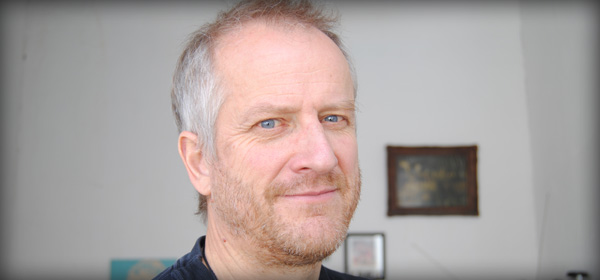Known for transforming spaces and historical buildings with his large-scale etchings and carvings, the work of the German artist Thomas Kilpper (b.1956) constantly brings to the surface the political and social relations of the places where he carries out his interventions.
Among his projects that deserve special mention are “Don’t Look Back”, carried out on a US military base near Frankfurt, and “State of Control”, centering on the former Ministry of State Security (Stasi) in Berlin (Germany). His work has been exhibited at the Meerrettich Gallery in Berlin (2004); the Munsterland Sculpture Biennial (2005); and at the 54th Venice Biennial (2011), in the Danish Pavilion specifically, among others.
According to Kilpper, his work always shows a historical relation and a biographical relation. The interest lies in “building a relationship with history and the place where I am. I place myself in that relationship”. Regarding his intervention in MDE11, he states that “it is not just a work about Colombia: It’s a personal work. It’s my perspective and is also part of my biography. I relate to the place myself. The opportunity to speak in front of this audience is what is incredible, because it is very strange for a visual artist to speak to the spectators in a theatre”.
The work of this artist, who was born in Stuttgart and lives in Berlin, consists of bringing different people in a city and their stories together. This process enables him to engage in a dialogue that leads to the construction of a version of history that distances itself from the official history. This conjunction of history, politics and the collective memory of the region gives rise to what he calls an installation or performance that provides those that have been excluded with a voice and is integrated to the international history of resistance and working for justice.
Website
www.kilpper-projects.de
Links of interest
Thomas Kilpper en Philagrafika 2010
Interview: Thomas Kilpper
MDE11 participation
Thomas Kilpper en el MDE11 (Vimeo)
‘¿Cómo puede superarse el estado de negligencia?’: Thomas Kilpper



 Sending data...
Sending data...
Pingback: Inauguración del Encuentro Internacional de Medellín MDE11 | MDE11()
Pingback: Thomas Kilpper: ¿Cómo puede superarse el estado de negligencia? | MDE11()